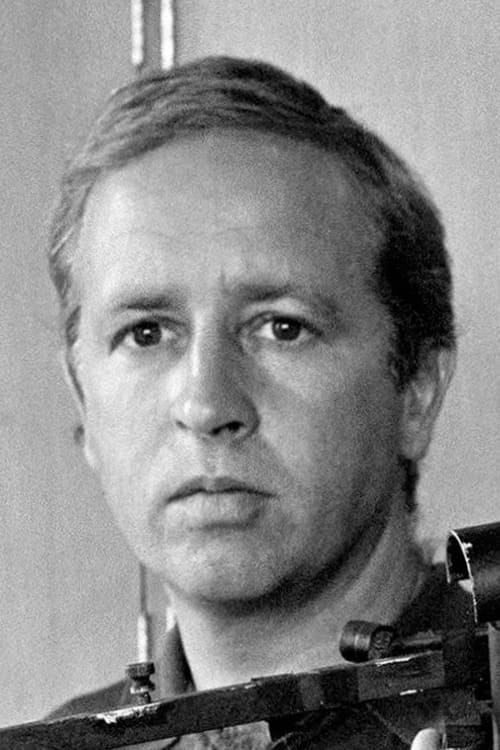
David Maysles
출생 : 1931-01-10, Brookline, Massachusetts, USA
사망 : 1987-01-03
약력
From Wikipedia, the free encyclopedia
Albert (born November 26, 1926, Boston, Massachusetts) and David Maysles (rhymes with "hazels", born 10 January 1932, Boston, Massachusetts) were a documentary filmmaking team whose cinéma vérité works include Salesman (1968), Gimme Shelter (1970) and Grey Gardens (1976). Their 1964 film on The Beatles forms the backbone of the DVD, The Beatles: The First U.S. Visit. Several Maysles films document art projects by Christo and Jeanne-Claude over a three-decade period, from 1974 when Christo's Valley Curtain was nominated for an Academy Award to 2005 when The Gates headlined New York's Tribeca Film Festival.
David Maysles, the younger brother, died of a stroke on January 3, 1987, in New York. Albert Maysles graduated in 1949 with a BA from Syracuse University and later earned a masters degree at Boston University. Albert has continued to make films on his own since his brother's death. Jean-Luc Godard once called Albert Maysles "the best American cameraman". In 2005 Maysles was given a lifetime achievement award at the Czech film festival AFO (Academia Film Olomouc). He is working on his own autobiographical documentary.
In 2005 he founded the Maysles Institute, a nonprofit organization that provides training and apprenticeships to underprivileged individuals. Albert is a patron of Shooting People, a filmmakers' community.
Description above from the Wikipedia article Albert and David Maysles, licensed under CC-BY-SA, full list of contributors on Wikipedia.

Director
A documentary on New York City’s biggest public art project ever, an installation called “The Gates” by Christo and Jeanne Claude.
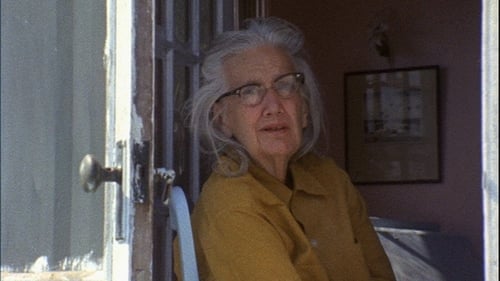
Self
Mother and daughter - Big Edie and Little Edie Beale - live with six cats in a crumbling house in East Hampton. Little Edie, in her 50s, who wears scarves and bright colors, sings, mugs for the camera, and talks to Al and David Maysles, the filmmakers. Big Edie, in her 70s, recites poetry, comments on her daughter's behavior, and sings "If I Loved You" in fine voice. She talks in short sentences; her daughter in volumes. The film is episodic: friends visit, there's a small fire in the house, Little Edie goes to the shore and swims. She talks about the Catholic Church. She's ashamed that local authorities raided the house because of all the cats. She values being different.

Director
Mother and daughter - Big Edie and Little Edie Beale - live with six cats in a crumbling house in East Hampton. Little Edie, in her 50s, who wears scarves and bright colors, sings, mugs for the camera, and talks to Al and David Maysles, the filmmakers. Big Edie, in her 70s, recites poetry, comments on her daughter's behavior, and sings "If I Loved You" in fine voice. She talks in short sentences; her daughter in volumes. The film is episodic: friends visit, there's a small fire in the house, Little Edie goes to the shore and swims. She talks about the Catholic Church. She's ashamed that local authorities raided the house because of all the cats. She values being different.
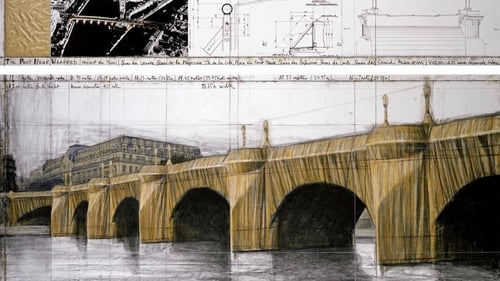
Director
Documentary about conceptual artist Christo and his wife Jeanne-Claude's attempt to "wrap" the Pont-Neuf in Paris.
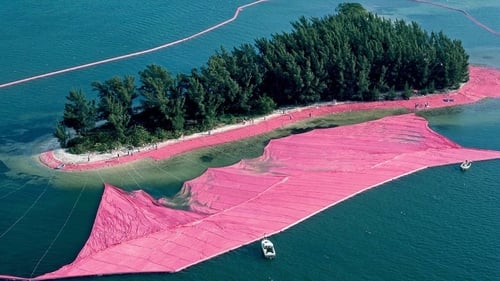
Director
The Maysles' third film about the artists sees them trying to get three projects off the ground: wrapping the Pont Neuf, the oldest bridge in Paris; wrapping the Reichstag; and surrounding eleven man-made islands in Florida with pink plastic sheets. As the latter is the only one that gets approval, it gets the bulk of this film.

Director
This intimate portrait of the legendary conductor Seiji Ozawa focuses on the Japanese master and teacher's career, his advocacy of modern composers and the behind-the-scenes world of the symphony orchestra.

Director
A stimulating study which features concert footage and interviews with the master pianist. Includes many of his favorite pieces.

Director
Through the poetic lens of visionary filmmakers Albert and David Maysles, Muhammad and Larry explores the unique and poignant relationship between two great boxers and two remarkable men who were more than just competitors. They were once teacher and student, and remain close friends.
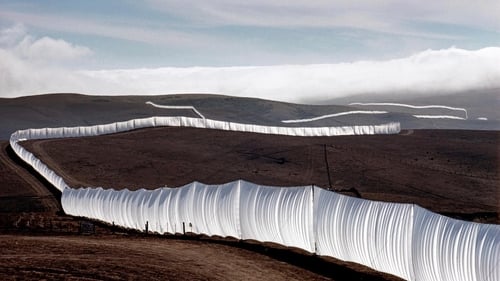
Director
Second in the series by the Maysles brothers documenting the monuments/sculptures of Christo, whose art projects are landscape-scaled, and more "pop" performance art designed to question how we relate to art in the public sphere, especially when it's as oblique, non-political (at least, that is what he would claim), and neutral as running a fence through a landscape.
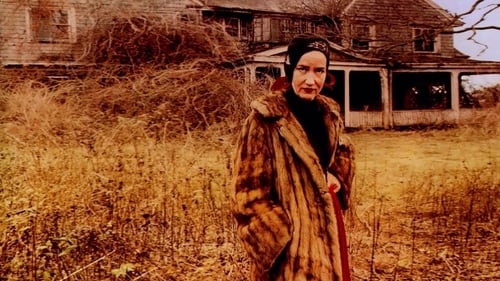
Director of Photography
Edie Bouvier Beale and her mother, Edith, two aging, eccentric relatives of Jackie Kennedy Onassis, are the sole inhabitants of a Long Island estate. The women reveal themselves to be misfits with outsized, engaging personalities. Much of the conversation is centered on their pasts, as mother and daughter now rarely leave home.

Producer
Edie Bouvier Beale and her mother, Edith, two aging, eccentric relatives of Jackie Kennedy Onassis, are the sole inhabitants of a Long Island estate. The women reveal themselves to be misfits with outsized, engaging personalities. Much of the conversation is centered on their pasts, as mother and daughter now rarely leave home.

Self (uncredited)
Edie Bouvier Beale and her mother, Edith, two aging, eccentric relatives of Jackie Kennedy Onassis, are the sole inhabitants of a Long Island estate. The women reveal themselves to be misfits with outsized, engaging personalities. Much of the conversation is centered on their pasts, as mother and daughter now rarely leave home.

Director
Edie Bouvier Beale and her mother, Edith, two aging, eccentric relatives of Jackie Kennedy Onassis, are the sole inhabitants of a Long Island estate. The women reveal themselves to be misfits with outsized, engaging personalities. Much of the conversation is centered on their pasts, as mother and daughter now rarely leave home.

Director
The Maysles profile a poor white Georgian family struggling to survive with the realities of thirteen children.
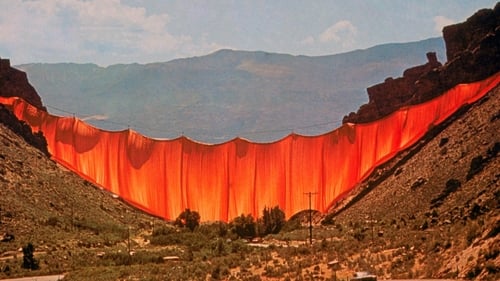
Director
Oscar nominated documentary about the largest man-made curtain in the world as "sculpture".

Self
앨버트와 데이비드 메이슬즈 형제가 69년 롤링 스톤즈의 공연 실황을 담아낸 다큐멘터리.

Director of Photography
앨버트와 데이비드 메이슬즈 형제가 69년 롤링 스톤즈의 공연 실황을 담아낸 다큐멘터리.

Director
앨버트와 데이비드 메이슬즈 형제가 69년 롤링 스톤즈의 공연 실황을 담아낸 다큐멘터리.

The Newsweek critic, Jack Kroll, interviews Albert and David Maysles about their new film, Salesman (1968).
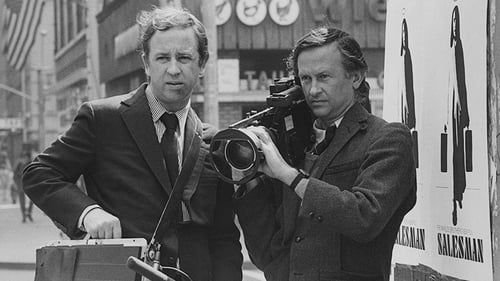
Editor
This documentary from Albert and David Maysles follows the bitter rivalry of four door-to-door salesmen working for the Mid-American Bible Company: Paul "The Badger" Brennan, Charles "The Gipper" McDevitt, James "The Rabbit" Baker and Raymond "The Bull" Martos. Times are tough for this hard-living quartet, who spend their days traveling through small-town America, trying their best to peddle gold-leaf Bibles to an apathetic crowd of lower-middle-class housewives and elderly couples.

Producer
This documentary from Albert and David Maysles follows the bitter rivalry of four door-to-door salesmen working for the Mid-American Bible Company: Paul "The Badger" Brennan, Charles "The Gipper" McDevitt, James "The Rabbit" Baker and Raymond "The Bull" Martos. Times are tough for this hard-living quartet, who spend their days traveling through small-town America, trying their best to peddle gold-leaf Bibles to an apathetic crowd of lower-middle-class housewives and elderly couples.

Director
This documentary from Albert and David Maysles follows the bitter rivalry of four door-to-door salesmen working for the Mid-American Bible Company: Paul "The Badger" Brennan, Charles "The Gipper" McDevitt, James "The Rabbit" Baker and Raymond "The Bull" Martos. Times are tough for this hard-living quartet, who spend their days traveling through small-town America, trying their best to peddle gold-leaf Bibles to an apathetic crowd of lower-middle-class housewives and elderly couples.

Director
This color documentary chronicles the musical concert on Mount Scopus in Israel a mere three weeks after the Six Day War. Leonard Bernstein and Isaac Stern join the Yoi Yisrael Philharmonic Orchestra, the Israel Philharmonic, and the Tel Aviv Philharmonic Choir for stirring classical renditions by Mahler and Mendelssohn. The concert was recorded by Columbia records for release at a later date and accurately captured the live music in all its classic splendor. Prime Minister David Ben-Gurion sits proudly in the front row as the symphonies play to a capacity crowd. Scenes of the war, the Wailing Wall, schools and hospitals are also included as Bernstein and Stern tour the country and meet the people of Israel.

Director
Journalists from all over America meet Marlon Brando in a New York hotel room to interview him about his new film, Morituri. Seeing this as an opportunity to let the legendary actor promote the film, they find Brando unwilling to talk about it, instead he is more interested in larking about and turning on the charm when being interviewed by a former winner of the Miss USA competition.

Director
Produced by 20th Century Fox, this Maysles Brothers short was intended to help promote the release of Disney's Fantastic Voyage (1966) for which Salvador Dali was artistic consultant. Shot in and around New York, the film features a cameo by a bikini clad Raquel Welch, star of Fantastic Voyage and Dali's muse for a series of portraits of Hollywood starlets.

Producer
Orson Welles pitches to potential investors his vision of a largely improvised bullfighter movie about an existential, James Dean type troubadour who sets himself apart from other matadors. In front of an audience of wealthy arts patrons, Welles pontificates on the state of cinema, the filmmaking process, and the art of bullfighting.

Director
Orson Welles pitches to potential investors his vision of a largely improvised bullfighter movie about an existential, James Dean type troubadour who sets himself apart from other matadors. In front of an audience of wealthy arts patrons, Welles pontificates on the state of cinema, the filmmaking process, and the art of bullfighting.

Producer
At his Long Island beach house, and on the occasion of the publication of his masterful nonfiction novel In Cold Blood, reporter Karen Dennison interviews celebrated writer Truman Capote, who displays his exuberant personality, makes witty jokes, shares his thoughts on writing, reflects on various aspects of the book and, in a sweet and endearing voice, reads and explains some of its highlights.

Editor
At his Long Island beach house, and on the occasion of the publication of his masterful nonfiction novel In Cold Blood, reporter Karen Dennison interviews celebrated writer Truman Capote, who displays his exuberant personality, makes witty jokes, shares his thoughts on writing, reflects on various aspects of the book and, in a sweet and endearing voice, reads and explains some of its highlights.

Director
At his Long Island beach house, and on the occasion of the publication of his masterful nonfiction novel In Cold Blood, reporter Karen Dennison interviews celebrated writer Truman Capote, who displays his exuberant personality, makes witty jokes, shares his thoughts on writing, reflects on various aspects of the book and, in a sweet and endearing voice, reads and explains some of its highlights.

Director of Photography
At his Long Island beach house, and on the occasion of the publication of his masterful nonfiction novel In Cold Blood, reporter Karen Dennison interviews celebrated writer Truman Capote, who displays his exuberant personality, makes witty jokes, shares his thoughts on writing, reflects on various aspects of the book and, in a sweet and endearing voice, reads and explains some of its highlights.

Producer
Filmed at New York’s Carnegie Hall, Cut Piece documents one of Yoko Ono’s most powerful conceptual pieces. Performed by the artist herself, Ono sits motionless on the stage after inviting the audience to come up and cut away her clothing in a denouement of the reciprocity between victim and assailant.

Director
Filmed at New York’s Carnegie Hall, Cut Piece documents one of Yoko Ono’s most powerful conceptual pieces. Performed by the artist herself, Ono sits motionless on the stage after inviting the audience to come up and cut away her clothing in a denouement of the reciprocity between victim and assailant.

Director
Told in the Maysles’ intimatible style, IBM: A SELF PORTRAIT captures the future corporate juggernaut at an early stage of their development. The emphasis here is on the human ingenuity behind the technology industry-- the colorful technicians and executives working together to create a future design for living.
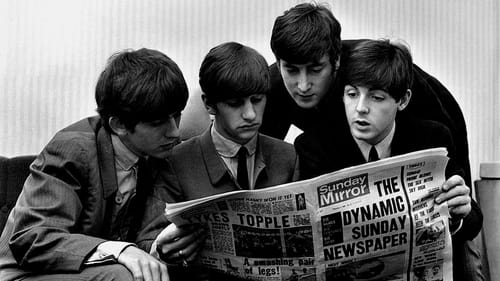
Director
New York, USA, February 1964. Five grueling days in the life of George, John, Paul and Ringo, the Fab Four, The Beatles: the hysterical fan reception at JFK airport; several press conferences; in their rooms at the Plaza Hotel; in the backstage at the Ed Sullivan Show; hanging out with the legendary DJ Murray the K; and the frantic return home.

Director
Albert and David Maysles (Gimme Shelter) directed this 53-minute documentary about movie tycoon Joseph E. Levine (1963).

Director











